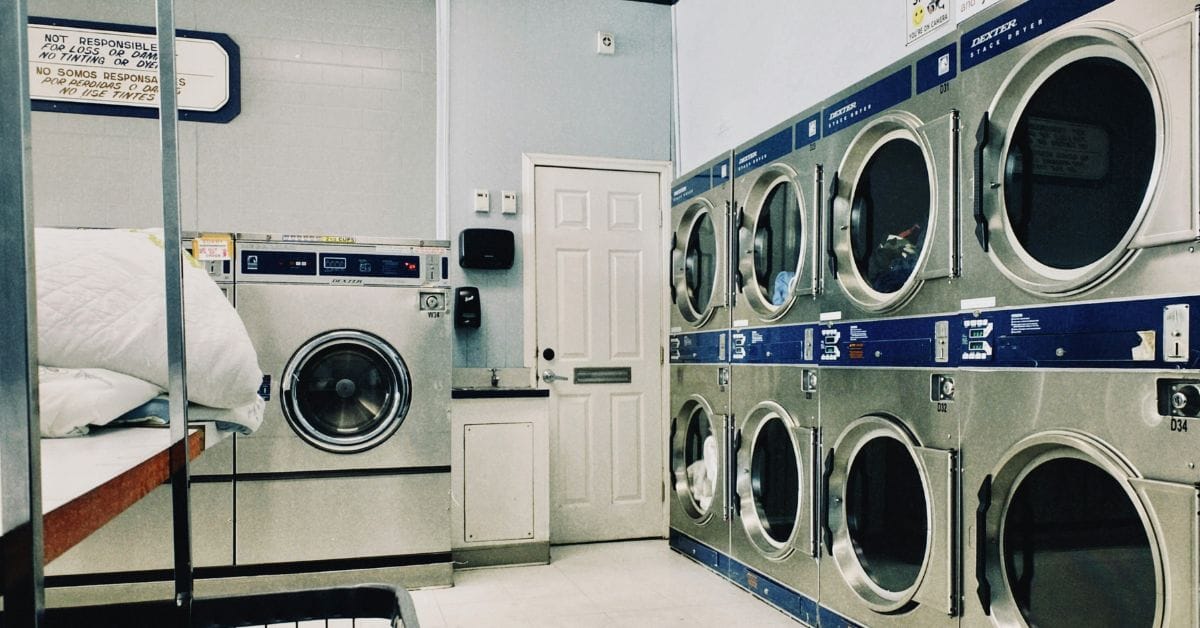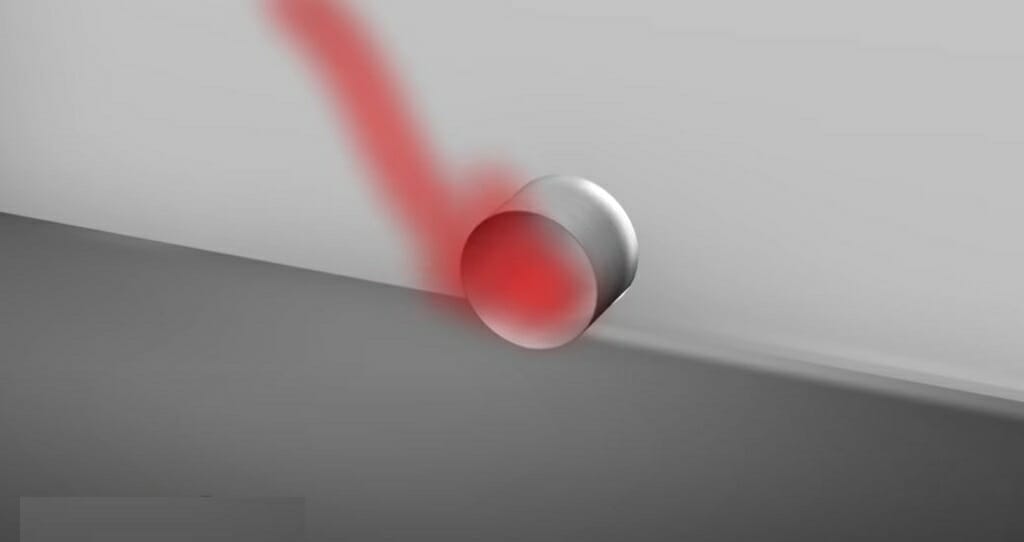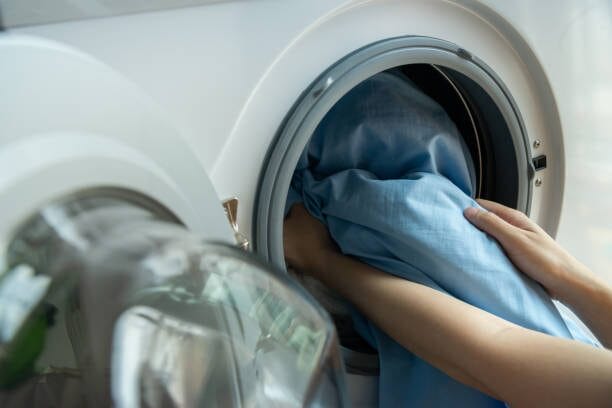Do Electric Dryers Produce Carbon Monoxide? (Guide)

Hey everyone! Today, we’re tackling a topic that I know causes a bit of worry for many – the risk of carbon monoxide poisoning from dryers. Let’s clear up some confusion and get to the bottom of this.
Carbon monoxide is no joke. It’s a silent danger that can be harmful, even fatal. And I know there’s a bit of uncertainty floating around when it comes to electric dryers.
Here’s the deal: If you’re using an electric dryer, you can sigh in relief. Electric dryers do not produce carbon monoxide. They use electric heating elements, not gas combustion, so there’s no CO production. This makes them a safer choice in terms of carbon monoxide risks.
By the end of this article, you’ll be clued up and ready to make an informed, safe choice for your laundry needs. Let’s get into it!
Overall Safety Considerations for Electric and Gas Dryers
Let’s dive into what you need to know about keeping things safe when choosing between electric and gas dryers. It’s a big decision, and I’ve seen a lot when working on home projects, so let’s clear up any confusion.

Electric Dryers: A Safe Choice Regarding CO
First up, electric dryers. If you’re leaning toward one of these, I have good news. These bad boys run on electricity – no gas involved. What does this mean for you? Simple – no carbon monoxide worries.
They heat up your clothes without any combustion process, so there’s zero chance of CO being produced. It’s a thumbs-up for safety in my book.
Gas Dryers: Understanding the Risks and Precautions
Now, gas dryers are a different ball game. These use natural gas or propane to generate heat to dry your clothes. Here’s where you need to be a bit more cautious. Burning gas can produce carbon monoxide, which, let’s be honest, is not something to take lightly.
It’s not all bad news. You can use a gas dryer safely if you’re on top of things. Regular maintenance is key here. You want to ensure everything’s running smoothly and that your venting system is doing its job right.
Remember to stay informed and keep up with regular checks and maintenance. Your safety is what matters most at the end of the day. Stay safe and happy drying!
Comparative Analysis: Electric vs. Gas Dryers – Energy Efficiency and Cost Analysis
When picking out a dryer, understanding the long-term costs and energy efficiency is super important. In my time working with these appliances,
I’ve gotten a pretty good grasp of how electric and gas dryers stack up over the years. Let’s dig into the details with a table that puts it all into perspective:
| Aspect | Electric Dryers | Gas Dryers |
|---|---|---|
| Initial Cost | Generally less expensive to purchase. | They tend to be more expensive upfront. |
| Installation | Easier and cheaper; plug into a standard outlet. | It is more complex and requires a gas line and professional installation. |
| Operating Cost | Higher, as electricity costs more than gas in most areas. Lower in the long run, as gas is usually cheaper than electricity. | |
| Energy Efficiency | Electric dryers are known for their higher energy use. On average, electric dryers consume about 551.61 kWh per year. | Gas dryers are more energy-efficient. They typically use about 176 kWh per year, calculated based on their BTU usage and average loads per year. |
| Long-Term Cost Analysis | Over time, electric dryers can cost more in energy bills despite the lower initial cost. | While the initial investment is higher, gas dryers can be more cost-effective over time due to lower operating costs. |
| Drying Time | Slightly longer drying times compared to gas. | Faster drying times, handy during busy laundry days. |
| Long-Term Safety | Lower risk as they don’t produce carbon monoxide. | Require more vigilance due to carbon monoxide risks. Regular maintenance is key. |
| Environmental Impact | It depends on the electricity source; it is more eco-friendly with renewable energy. | Burns fossil fuels, but advancements are reducing their environmental footprint. |
| Maintenance | Typically simpler and less costly maintenance. | It can be more complex due to gas components. |
From my experience, it’s all about looking at the bigger picture and determining what works best for your situation.
Dryer Troubleshooting Guide: Fix It Like a Pro
Over the years, I’ve encountered my fair share of dryer issues and picked up some tricks to fix them. Here’s a simple guide to help you tackle those common problems like a seasoned handyperson.

Dryer Won’t Start
- Check the Power Source: Make sure your dryer is properly plugged in. For electric dryers, check your circuit breaker. For gas dryers, ensure the gas supply is on.
- Inspect the Door Switch: A faulty door switch can prevent the dryer from starting. Press it by hand to see if there’s a clicking sound. No click could mean it’s time for a replacement.
Dryer Not Heating Up
- For Electric Dryers: Check the heating element. It should be glowing red when running. If it’s not, it might need replacing.
- For Gas Dryers: The igniter or thermal fuse could be the culprit. The gas valve coils might be broken if the igniter glows but doesn’t light.
Dryer Gets Too Hot
- Check Ventilation: A clogged vent is a common cause. Make sure the venting system is clear of lint and obstructions.
- Inspect the Thermostat: A faulty thermostat can cause overheating. It might need testing or replacing.
Dryer Is Noisy
- Worn Drum Rollers or Bearings: These parts can wear out over time and cause a rumbling noise.
- Check for Loose Items: Sometimes, the noise might be from loose coins or metal objects in the drum.
Clothes Taking Too Long to Dry
- Clear the Lint Filter: A clogged lint filter can significantly extend drying time.
- Inspect the Dryer Hose: Ensure the hose isn’t kinked or blocked, restricting airflow.
Dryer Stops Mid-Cycle
- Overheating Motor: If the dryer stops after running for a while, it might be overheating. Let it cool down, and try again.
- Check the Thermostat and Thermal Fuse: These components can cause the dryer to stop if they fail.
Remember, safety comes first! Unplug your dryer before doing any checks or repairs. And if you’re unsure or the problem seems complex, don’t hesitate to call a professional.
Maintenance Tips for Electric and Gas Dryers
Let’s talk about keeping your dryers in top shape. Whether you’ve got an electric or a gas dryer, regular maintenance ensures they run safely and efficiently. I’ve seen plenty of dryers, and a little TLC goes a long way. Here are some tips I’ve picked up along the way:
For Electric Dryers:
- Clean the Lint Filter: Clean out the lint filter after every load. This not only improves efficiency but also reduces the risk of fire.
- Inspect the Venting System: Check the venting system every few months for blockages. A clogged vent can lead to overheating and, worst-case scenario, a fire.
- Check the Drum Seals: Inspect the drum seals periodically. If they’re worn out, they can cause inefficiency and longer drying times.
- Keep the Area Around the Dryer Clean: Ensure the area around your dryer is free from clutter and lint buildup, which can be a fire hazard.
- Inspect the Power Cord: Regularly check the power cord for any signs of wear or damage. If it looks frayed or worn, get it replaced pronto.
For Gas Dryers:
- Monitor the Flame: The flame should be a steady blue. If it’s yellow, that’s a sign something might be off with the combustion, which could lead to carbon monoxide issues.
- Check Gas Connections: Make sure your gas connections are secure and leak-free. I recommend having a professional inspect these regularly.
- Ventilation Check: Like electric models, ensure the venting system is clear. Proper venting is crucial for gas dryers to prevent carbon monoxide buildup.
- Lint Filter and Area Cleaning: Same drill as with electric dryers – keep that lint filter and surrounding area clean to prevent fires.
- Regular Professional Check-Ups: Having a qualified technician inspect your gas dryer annually is smart. They can spot issues you might miss.
General Tips for Both Types:
- Routine Inspection: No matter the type, give your dryer a routine inspection every few months. It’s all about catching small problems before they turn into big ones.
- Don’t Overload: Avoid overloading your dryer. It puts extra strain on the motor, leading to inefficiency and wear.
- Proper Usage: Stick to the manufacturer’s guidelines for use. It might sound basic, but you’d be surprised how often this gets overlooked.
In my experience, a well-maintained dryer runs more efficiently and lasts much longer. It’s one of those appliances where regular attention pays off in the long run. Stay safe, and keep those dryers humming!
Frequently Asked Questions
- How Often Should I Have My Gas Dryer Inspected?
- I’d recommend having your gas dryer inspected by a professional at least once a year. They’ll check for any gas leaks, ensure proper ventilation, and ensure everything runs safely and efficiently.
- Is It Safe to Install a Gas Dryer Myself?
- I always say it’s best to leave gas appliance installations to the pros. Incorrect installation can lead to gas leaks or improper venting, which can be serious hazards. Plus, a professional will make sure everything’s up to code.
- What Are the Signs of Carbon Monoxide Poisoning?
- Be looking for symptoms like headaches, dizziness, nausea, or feeling tired and confused. These can all be signs of carbon monoxide poisoning. If you suspect CO exposure, get fresh air immediately and seek medical help.
- How Can I Prevent Carbon Monoxide Poisoning From My Dryer?
- For gas dryers, ensure proper installation and regular maintenance. Good ventilation is key. Also, installing a carbon monoxide detector near your dryer can be a real lifesaver – it’s an easy way to monitor CO levels.
- Can Installing a Carbon Monoxide Detector Near My Dryer Replace Regular Maintenance?
- A carbon monoxide detector is a great idea, but it doesn’t replace regular maintenance. Think of the detector as an extra layer of safety, not a substitute. Regular check-ups are key, especially for gas dryers.
- How Long Do Electric and Gas Dryers Usually Last?
- Most dryers can last 10-13 years with proper care and maintenance. However, this can vary based on usage, model, and how well you keep up with maintenance.
References
Studies:
- Energy Efficiency Standards for Residential Clothes Dryers. https://energy.lbl.gov/publications/evaluation-energy-efficiency-0
- Multi-Criteria Evaluation of High-Efficiency Clothes Dryers. https://www.osti.gov/biblio/696737
Organizations:
- Energy Star. https://www.energystar.gov/
- Consumer Reports. https://www.consumerreports.org/
Books:
- “The Complete Fix It Yourself Handbook” https://www.goodreads.com/book/show/125013966-your-guide-to-rv-repair
Website Resources:
- ElectricityRates.com. https://electricityrates.com/energy-choice-blog/electric-or-gas-dryer-which-is-more-energy-efficient/
Video References:
RepairClinic.com
